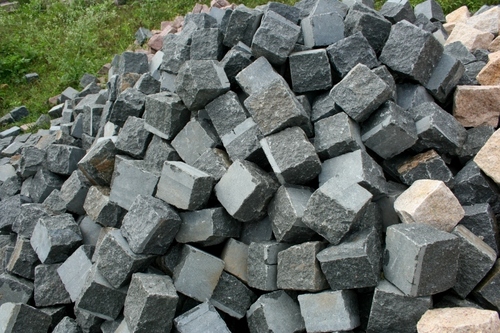
LEONARD Chimbaira sits outside his thatched hut in Nyamakosa Village in Mutoko.
BY JAIROS SAUNYAMA
He cannot sleep as rock blasting and the sound of heavy machinery at the black granite mine a few kilometres away and haulage trucks moving along the dirt road connecting his village to the Harare-Nyamapanda highway, produce a lot of noise.
Over the years, Chimbaira has watched in agony the miners exploiting the natural resource, taking it out of his village with no returns.
The roads are bad and the area is grossly underdeveloped despite the abundance of the precious stones being trucked away by both local and foreign-owned firms for use in the construction of expensive and precious building materials.
“The heavy trucks have been moving in and out of this area with the black granite blocks for the past two decades but this area is not developed. We are supposed to benefit from our natural resources but in Mutoko it is the other way.
“We remain poor, there is no development in this area. The mining firms are ignoring the calls by government to give back to the community. Something needs to be done,” said Chimbaira from Mutoko District, Mashonaland East Province.
Many in this district have for years watched helplessly the exploitation of black granite in the area, with the miners failing to develop the area. Mutoko, ironically, is one of the poorest districts in the country.
- Chamisa under fire over US$120K donation
- Mavhunga puts DeMbare into Chibuku quarterfinals
- Pension funds bet on Cabora Bassa oilfields
- Councils defy govt fire tender directive
Keep Reading
Government recently summoned five Mutoko black granite mining companies and ordered them to comply with indigenisation laws through contributing to the Community Share Ownership Trust (CSOT) or face closure.
This came after government faced massive resistance from the black granite miners in Mutoko who refused to honour their pledges towards CSOT that was launched few years ago by President Robert Mugabe under the indigenisation and empowerment exercise.
Mashonaland East Provincial Affairs minister Joel Biggie Matiza travelled to Mutoko where he summoned the mining companies and ordered them to honour their pledges to the scheme.
Matiza ordered them to pay the money into the trust account by May 15 this year but nothing has happened.
“These firms have been mining granite since 1972 and nothing has been done to develop the community. They have to do something for the community.
“They are claiming there is no business these days but they should find a way to pay the needed money. If there is no business they should close shop,” he said.
“Some of the companies are saying they have been constructing roads or drilling boreholes, which is social responsibility and is different from the CSOT scheme.”
The companies include Natural Stone, CRG, Zimbabwe International Quarry, Enterprises and Ilford Red.
Mutoko District is expected to gain $10 million if all the five companies honour their pledges.
Speaking during the meeting that was attended by various stakeholders recently, Edward Muvuro, spokesperson of Dimension Stone Producers’ Association, a group that represents granite miners in Mutoko, said the companies were willing to deposit some money into the trust account.
“We support the indigenisation and empowerment exercise and we promise to honour our pledges,” he said.
“We have been giving back to the community and participating in the CSOT scheme is in line with our economic blueprint ZimAsset. But business is low these days. We do not get much as what people think.”
Investigations by the Zimbabwe Environmental Lawyers Association (Zela) revealed that the companies exporting black granite rake in fortunes but were not willing to remit for the development of the area.
Zela noted that in 2009 alone, 121 000 metric tonnes worth $12,1 million were extracted in Mutoko District alone. At least 98% of black granite extracted from Mutoko is exported to European countries like Germany, Spain and Italy.
According to the Zimbabwe Mining Development Corporation, Mutoko District produces 75% of the country’s black granite.
At one point, villagers demonstrated against exploitation of their natural resource but were arrested and fined $300 each.
Mutoko East MP Ricky Mawere said there was need for government to be hard on black granite miners for the development of the community.
“The issue of black granite mining in Mutoko is worrisome. It has been long since the area started losing its natural resources to miners without any benefit.
“Today we boast of nothing but gullies and pits left by miners. It is up to the government to be tough and ensure that the community benefits from this,” said Mawere.
In 1990 the Zimbabwe government classified granite as a mineral and began to take revenues from the companies doing the mining. In the process, they reduced the money that Mutoko Rural District Council got from mining activities.
Before this development, the council used to make decent earnings from the mining and was able to, among other things, build Mutoko High School, Mutoko District Office Complex and three clinics. That is no longer the case because the money is insufficient to sustain community projects.
The only money that Mutoko gets from the mining companies is $18 400 per year from development levies in terms of the Rural District Councils Act.
As it stands, Chimbaira has no hope that development will come into his village during his lifetime.
But he prays that his grandchildren will grow up in a developed Mutoko.











